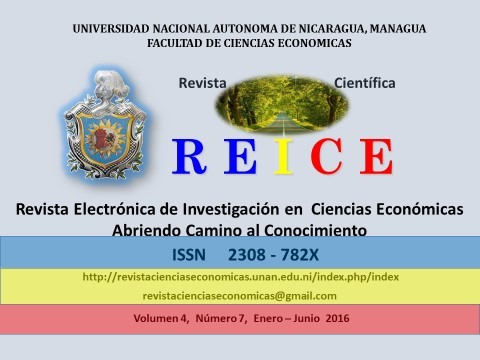Economic policy strategies targeting the livestock sector. 2010-2015
DOI:
https://doi.org/10.5377/reice.v4i8.3062Keywords:
Strategies, livestock, policies, growth, productionAbstract
The objective of this article is to analyze the sectorial impacts of the economic policy strategies directed to the livestock sector of Nicaragua. Thus, for the purposes of developing the research study, the analysis-synthesis method has been used to observe, understand, explain and assess the policy strategies implemented in the livestock sector of Nicaragua between 2010 and 2015. Hence, it is considered that these ordinances have been able to fulfill the objectives of growth of the sector and increase of its productivity. However, actions should be redirected to stimulate certain activities belonging to the sector such as porcine, which is not allocated sufficient resources for its development. At the same time, the high potential of this sector to contribute to the Sustainable Development Goals (SDG), due to their impact on food, economic and environmental systems, should be highlighted; however, this is being underutilized. Therefore, it is proposed to intervene in the challenges of livestock production and identify new tools and better policies for the development of sustainable livestock in the territory.Downloads
883
Downloads
Published
How to Cite
Issue
Section
License
Copyright (c) Revista Electronica de Investigacion en Ciencias Economicas
The rights to the articles published in REICE are from the journal, in order to be able to manage their best dissemination. However, since the purpose of the same is the dissemination of knowledge, this journal provides immediate free access to its content, under the principle that making research available to the public free of charge, which fosters a greater exchange of global knowledge.
The opinions expressed by the authors do not necessarily reflect the position of the publisher of the publication or of the UNAN-Managua. Its reproduction and distribution is authorized (in any type of support) provided that the following indications are fulfilled:
- The authorship of the work
- Indicate its origin (REICE magazine, volume, number and electronic address of the document)

